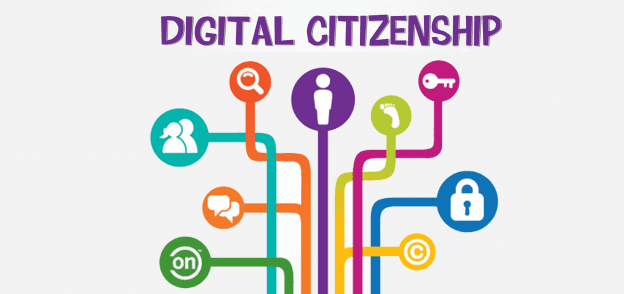![]()
The time is long past where parents could shield their children from the ills of social media or keep them away from gadgets. Now gadgets are a ubiquitous aspect of a child’s life, irrespective of his or her age. It has been well-documented that colleges and recruiters go through a potential candidate’s digital footprint before making decisions. With the growing number of teens using social media, the need to communicate on how to conduct yourself online has become vital. It is important for them to know that what they put out on social media today can cause trouble to them tomorrow.
Online behavioural conduct is referred to as digital citizenship. Digital citizenship is the quality of online behaviour that impacts content. By acting responsibly and respectfully, not only can your child enjoy all the offerings of the internet, he or she can also be protected from cyber bullying.
A few basics to share with your child:
- Using appropriate language– Children will use the internet to communicate with not only their friends but also their teachers, relatives and the world as a whole. Thus, using appropriate language is necessary.
- Mutual respect– Every person has an opinion and respecting that is vital. In case of a disagreement, be polite. Avoid forcing your point on someone or unnecessary verbal debates.
- Plagiarism– It is easy to copy someone else’s work and pass it on as your own. The only rule for plagiarism is to not do it. Give credit where it is due.
- Think before you post– It is always a good idea to think about how others might feel on the post you wish to share. Don’t be hasty.
As parents, just like you teach your child values and behaviours that you wish them to emulate, the same holds true when they make their foray into the world of social media. With these basic yet simple guidelines, you can help your child to have a healthy digital presence.
